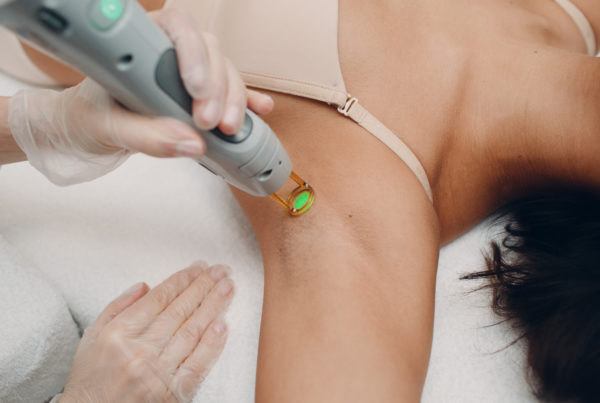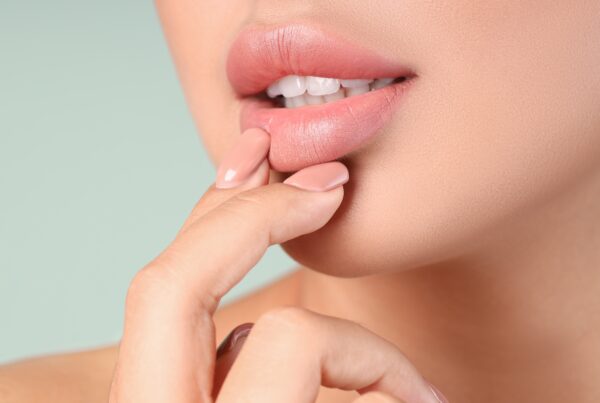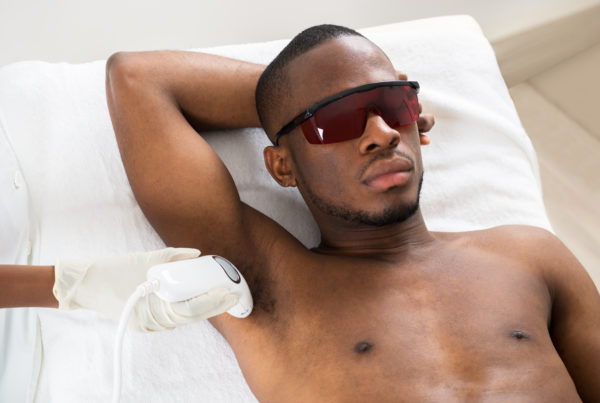Fight infection with Dr Chatterjee’s 4 Pillar Plan: the fourth pillar – Sleeping well
How improving your sleep can help you fight infection
It’s interesting to see so many face masks currently being worn to protect against infection from Covid-19. Whilst there may be some benefits to taking the precaution of wearing a mask it seems reckless not take the precaution of enlisting and enhancing your body’s amazing capacity to fight infection by adopting simple and easy healthy interventions. Especially when you consider your body’s very own biological defence systems which protect you against infection have been refined over billions of years of evolution.
That is why this month’s lockdown article covers Dr Chatterjee fourth and final pillar from his brilliant health book “The Four Pillar Plan”. The fourth pillar is sleep. This pillar underpins Dr Chatterjee’s other three pillars of health. This is because when you sleep well you generally make better choices and so find it easier to resist sugary and processed food (eat pillar). And you feel more energetic and so are more motivated to exercise more (move pillar). Enough good quality sleep also means you’re more inclined to engage in relaxation exercises like meditation (relax pillar) which is self-reinforcing so you sleep better and the cycle is self-perpetuating. Better sleep not only improves your immune system in itself the improvements in the other three pillars that better quality sleep produces also improve your immunity. Sleep really is the best medicine.
All animals sleep and we spend around a third of our lives in slumber. It’s been found that rats can die after a month without it. Clearly, this is a crucial biological process so it is really interesting to learn from an Oxford University study that we are getting between one or two hours less sleep a night than we were sixty years ago. This is worrying as good quality sleep could help fight not only infection but many common chronic illnesses like type two diabetes. This is particularly relevant at the moment considering the elevated risk type two diabetes represents for Covid-19 suffers.
Countless recovery processes take place while you sleep. For example, during sleep, your body actually clears out the protein beta-amyloid, which is found to accumulate in patients suffering from Alzheimer’s. It also undergoes the cellular cleansing process autophagy that recycles all your cellular junk.
Here’s a list of the potential benefits Dr Chatterjee suggests a good night sleep will provide you with:
- More energy
- Better concentration
- Improved ability to learn
- Better ability to resist poor food choices
- Improved immunity
- Enhanced autophagy (your body’s self-cleaning process)
- Lower risk of developing chronic diseases like type two diabetes
- Improved memory
- Extended life expectancy
- Lower levels of stress
- Reduced risk of obesity
- Reduced risk of Alzheimer’s
Unfortunately, it’s not just a case of catching up on your sleep with a lie-in at the weekend. Studies have shown that we accumulate a “sleep debt” from even just mild chronic sleep deprivation which can impair our performance even after three days of recovery. The consequences of sleep deprivation aren’t just physical. It has been shown to increase your chances of psychiatric disorders, your likelihood of being involved in a traffic accident and reduced your performance at work.
So it’s pretty obvious sufficient high-quality sleep is important for your health and your ability to fight infection. So what are the things you can do to improve your sleep? Dr Chatterjee provides five interventions that are all backed up with a plethora of science. Here they are:
1. Create an environment of absolute darkness
Darkness is so important because melatonin the hormone principally responsible for helping you fall asleep is triggered by darkness. This forms part of a daily rhythm your body follows called your circadian rhythm. This regulates everything from your immune system, gut function, your muscle strength to of course your sleep cycle.
Dr Chatterjee points out that exposure to bright lights after sunset is a modern phenomenon which began with the advent of street lighting just over a hundred years ago. The problem has become significantly worse recently with the advent of electronic devices and our tendency to take them to bed with us. These devices emit a very high frequency of light called “blue light” which mimics the early morning light. This means looking at your devices in the evening tricks your body into thinking it is time to wake up and stops your secretion of melatonin. Even a glance at a smartphone can impact on your production of melatonin. You can mitigate the effect of this by wearing “blue light’ glasses or by installing a night time mode on your phone. This reduces the intensity and frequency of light emitted by your phone giving your screen an amber appearance. Dr Chatterjee also strongly recommends implementing a curfew on your devices at least 90 minutes before bedtime.
This advice also holds for television although Dr Chatterjee recognises that its impact can be less than other electronic devices because there is usually a greater distance between the viewer and the screen. It is, however, worth noting that there is a well-established correlation between cardiovascular disease and TV viewing times. Dr Chatterjee’s recommendation is to remove your television from your bedroom completely and try to turn your TV off at least thirty minutes before bed.
Interestingly it seems that red light has the least impact on your circadian rhythm. It is suggested this is because it mimics the wavelength emitted by our ancestors’ campfires.
Tips for Embracing the Darkness:
- Fit extra-thick well-fitted curtains and/or blackout blinds
- Create a screen-free environment in your bedroom (laptops; televisions; phones)
- Buy an old fashioned non-light-emitting alarm clock
- Ensure the curtains on the landing are black-out and drawn to prevent light leaking into your bedroom.
- Don’t charge your phone in your bedroom to help you avoid bringing it to bed with you
- Use a red night light
- Buy Amber ‘ blue light’ glasses to help minimise your exposure evening blue light
2. Embrace Morning Light
Dr Chatterjee recommends at least twenty minutes exposure to light every morning. This is because the frequency of light emitted by the sun in the morning is crucial for kick-starting your circadian rhythm. As well as enhancing our feelings of well-being in the day it’s also important for good night sleep. Studies have even found that those exposed to more morning light have a lower body mass index and even smokers have the same risk of mortality as that of non-smokers who do not expose themselves to the sun.
This all seems difficult to accept when you look out the window at dark cloudy January day. However even on a cloudy day your still likely to receive around 10,000 lux of light. This compares to just 500 lux even in a brightly lit interior room. this is one of the reasons Dr Chatterjee recommends we do not wear sunglasses in the morning to help us get that important exposure to light. He even recommends companies should give its workers light breaks so that they can get their quota of sunlight.
Tips for Embracing Morning Light:
- Have your morning tea or coffee in the garden – wear a fleece if it is cold
- Stop your morning newspaper delivery and go collect it yourself
- If you drive in the morning park your car a ten-minute walk from your destination
- When shopping in the morning park your car as far away from your supermarket entrance as possible
- Get off the bus or train two stops before your destination and walk the remained in the morning light
- Buy a dog
- Have a morning break from work and go for a short walk
3. Create a bedtime routine
There is a brilliant quote from Octavia Butler:
“First forget inspiration. Habit is more dependable. Habit will sustain you whether you’re inspired or not”.
This gets to the crux of this intervention of Dr Chatterjee’s. Our bodies are governed by complex systems of rhythms that govern much of our biological functions and it seems sensible to support them by having a constant bedtime routine that leads us to sleep. This includes things like starting your evening wind down with a tech-free 90 minutes.
Whilst it might not always be possible to get to bed at the same time every evening it is interesting to learn that Jamie Oliver began wearing a tracker device that would give off an alarm for him to go to bed. In reality, our social lives will eventually get in the way of a regular bedtime once the lockdown ends and life starts to return to some form of normality. Dr Chatterjee recommends that no matter what time we do go to bed we still get up at the same time. Whilst this seems to fly in the face of earlier advice about sleep deficits it seems it is more important to try to maintain your circadian rhythm as much as possible and if necessary to top up your lost sleep with naps.
4. Manage your commotion
This intervention relates to the last couple of hours before bedtime or the ‘campfire hours’ our prehistoric ancestors would have enjoyed in the evenings. It is about reducing stimulation and emotional tension; winding down as the day ends.
Sleep studies have shown that 82 per cent of respondents were kept awake at night thinking about what they had done during the day and what they had to do tomorrow. This is why shutting down completely from work is so important. One of the techniques recommended in Cal Newport’s book “Deep Work” is a daily shut down process from work where you compile a list of everything you have to do tomorrow at the end of your workday. Once you have done this tell yourself that your shut down is complete and then forget about work until the next day. This process of writing down a to-do list enables you to forget about work and reduces anxiety because once your list is completed, you now no longer need to recall and think about what you have to do tomorrow; you have it written down on your list.
Another well-established technique for reducing your stress and anxiety is to write a gratitude journal. Giving thanks is an ancient technique recognised in many civilisations and religious creeds. This practice is perhaps more important than ever before living, as we are, in a world with 24-hour news which constantly reports on real-life drama, crisis, devastation and disaster. Sending images and commentary into our homes, work and cars every day. It’s easy to forget that this is, in fact, the most abundant and safest moment in human history. Despite the real dangers Covid-19 represents to many people we’ve never before in the history of humanity had the technology or resources to respond to a pandemic in the way we have today.
Tips for managing your commotion in the campfire hours:
- Turn off the commotion on your TV in programs like the news or thrillers
- Don’t discuss stressful family or financial matters before bed
- Leave your work emails until the morning
- Leave vigorous exercise for another time instead focus on restorative and relaxing exercises like yoga or stretching
- Do breathing exercises to help you unwind
- Meditate before bed to help quieten your mind
- Write your to-do list for tomorrow and then forget about your work
- Educate your family about your bedtime routine
- Write an entry in your gratitude journal
5. Enjoy your Caffeine before noon
This is a really simple straightforward intervention. Just enjoy your caffeine before noon. Although there are differences in the rate that each of us metabolises caffeine make no mistake about it, caffeine disrupts your sleep. This is why you must give your body sufficient time to metabolise it and get it out of your system in time for bed.
Interestingly caffeine has been shown to provide several health benefits including lowering the risk of heart attack, stroke and Alzheimer’s disease. This is why Dr Chatterjee doesn’t suggest you eliminate it. Rather just enjoy it at the right time. The noon watershed is chosen because caffeine has what is known as a half-life of six hours. This means that after six-hours has passed the level of effect the caffeine is having will have reduced by fifty per cent. Although there is a degree of variability in the length of this half-life depending on your genetics and your lifestyle, having your last cup of coffee or tea by noon will ensure the effects of your cuppa should have worn off by the time you climb into bed.
Even if you’re one of these people who can fall asleep after an after-dinner coffee the evidence suggests that you don’t truly access the deep levels of restorative sleep you need. The reality is that if you think your sleep could be improved it’s probably best to avoid caffeine after midday.
Tips to Reduce your caffeine intake after 12 noon
- Avoid Decaffeinated coffee after midday as many brands still contain trace amounts
- Replace your caffeinated drinks with sparkling water
- Increase your energy levels by reducing your sugar intake and so reducing your craving for a caffeine boost in the afternoon
- Drink caffeine-free herbal teas to get you through your mid-afternoon slump
- Drink camomile tea in the evening as a caffeine replacement
So that concludes this newsletter on Dr Chatterjee’s fourth pillar of health ‘Sleep’ and is the final instalment in this series of newsletters. Hopefully, you’ve found these Chatterjee interventions helpful. Whilst it’s always been important to look after your health, it is more important than ever to give yourself the best possible chance if you are unlucky enough to catch the virus. There is no cure and no vaccine available yet, but we all have an amazing body with an amazing ability to fight infection when it is give the best possible chance to do so. Hopefully, you’re able to embrace at least some of his interventions and they help you to stay safe.





